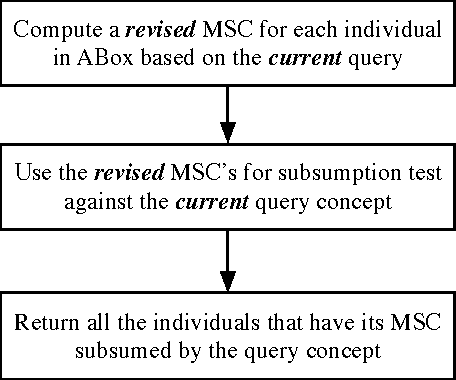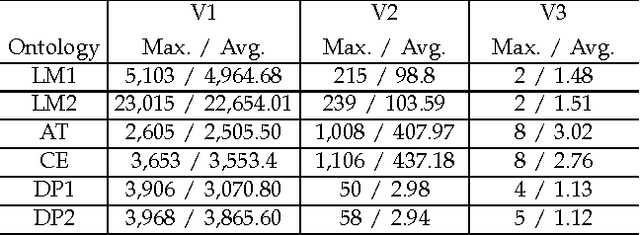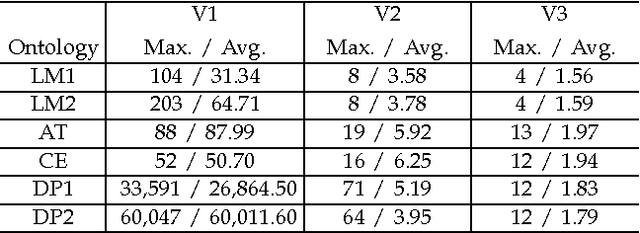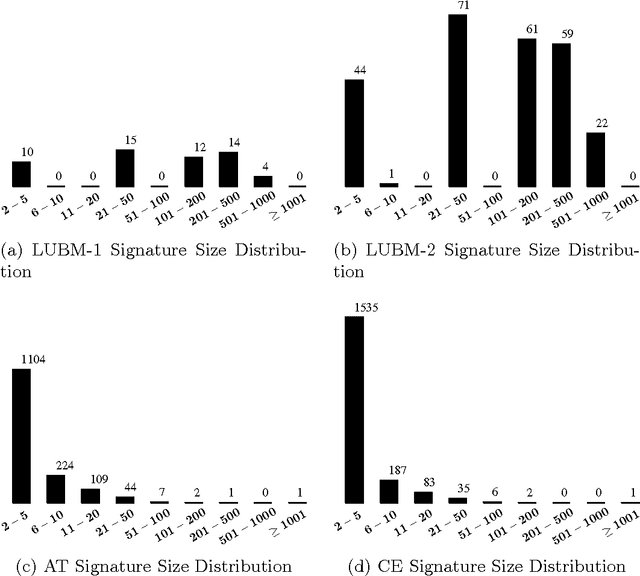Patrick Shironoshita
Converting Instance Checking to Subsumption: A Rethink for Object Queries over Practical Ontologies
Feb 26, 2015



Abstract:Efficiently querying Description Logic (DL) ontologies is becoming a vital task in various data-intensive DL applications. Considered as a basic service for answering object queries over DL ontologies, instance checking can be realized by using the most specific concept (MSC) method, which converts instance checking into subsumption problems. This method, however, loses its simplicity and efficiency when applied to large and complex ontologies, as it tends to generate very large MSC's that could lead to intractable reasoning. In this paper, we propose a revision to this MSC method for DL SHI, allowing it to generate much simpler and smaller concepts that are specific-enough to answer a given query. With independence between computed MSC's, scalability for query answering can also be achieved by distributing and parallelizing the computations. An empirical evaluation shows the efficacy of our revised MSC method and the significant efficiency achieved when using it for answering object queries.
Extract ABox Modules for Efficient Ontology Querying
Jun 11, 2014



Abstract:The extraction of logically-independent fragments out of an ontology ABox can be useful for solving the tractability problem of querying ontologies with large ABoxes. In this paper, we propose a formal definition of an ABox module, such that it guarantees complete preservation of facts about a given set of individuals, and thus can be reasoned independently w.r.t. the ontology TBox. With ABox modules of this type, isolated or distributed (parallel) ABox reasoning becomes feasible, and more efficient data retrieval from ontology ABoxes can be attained. To compute such an ABox module, we present a theoretical approach and also an approximation for $\mathcal{SHIQ}$ ontologies. Evaluation of the module approximation on different types of ontologies shows that, on average, extracted ABox modules are significantly smaller than the entire ABox, and the time for ontology reasoning based on ABox modules can be improved significantly.
 Add to Chrome
Add to Chrome Add to Firefox
Add to Firefox Add to Edge
Add to Edge